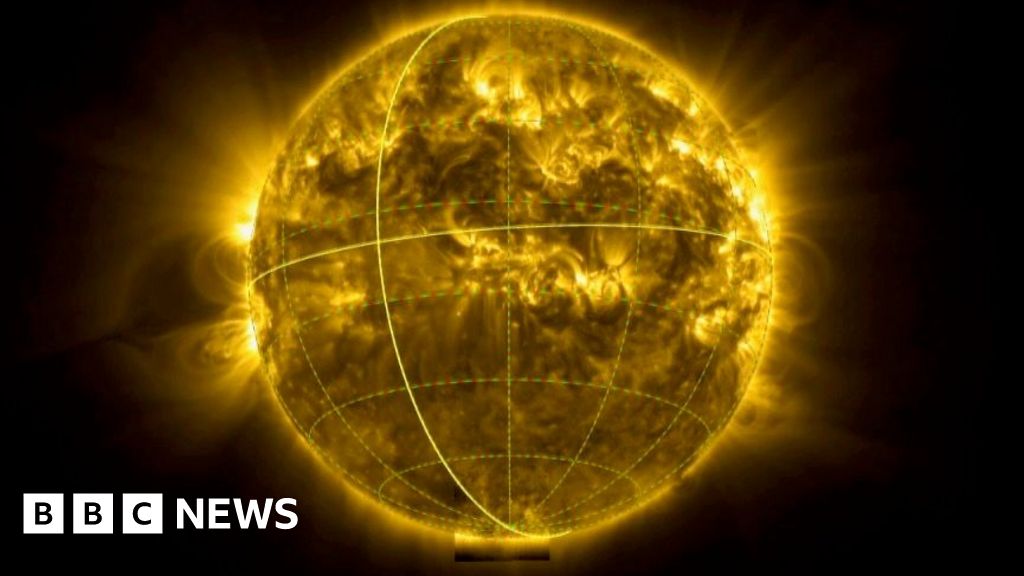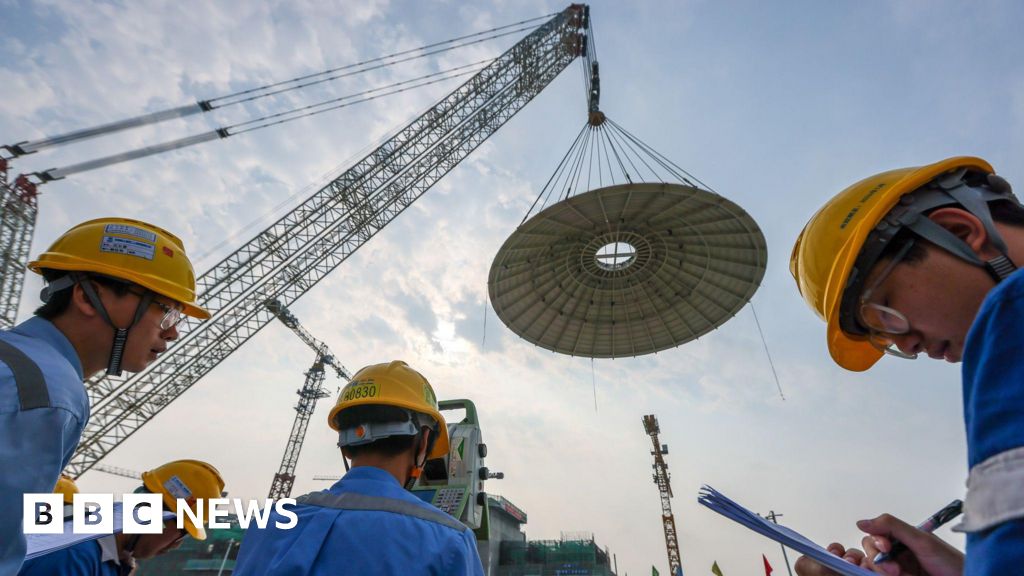ARTICLE AD BOX
By Roger Harrabin
BBC environment analyst
More than 40 world leaders say they will work together to turbo-charge the uptake of clean technologies by imposing worldwide standards and policies.
The announcement will be made at the climate summit COP26 in Glasgow on Tuesday.
Five high-carbon sectors will be targeted at first, including agriculture and electricity.
It aims to encourage global private investment in low-carbon technologies.
Similar international attempts have been made previously to push clean tech - but nothing as ambitious as this multi-lateral agreement.
Its backers want to reassure investors that global markets will be created for green technology and that it is a good financial bet.
It is hoped that eventually the initiative will help draw in trillions of dollars in private finance for cutting emissions.
The five sectors that the plan will cover at first are steel, road transport, agriculture, hydrogen, and electricity.
The initiative, known as the Glasgow Breakthroughs, was applauded by Nick Mabey from the climate think tank e3g.
He told me: "This potentially has real muscle. It takes climate change out of the negotiating halls and into the real economy.
"Imagine if major nations agreed to set a target for the amount of 'green steel' to be made. (That's steel made with hydrogen or electricity.) That would be really powerful by creating a market."
COP26 climate summit - The basics
- Climate change is one of the world's most pressing problems. Governments must promise more ambitious cuts in warming gases if we are to prevent greater global temperature rises.
- The summit in Glasgow is where change could happen. You need to watch for the promises made by the world's biggest polluters, like the US and China, and whether poorer countries are getting the support they need.
- All our lives will change. Decisions made here could impact our jobs, how we heat our homes, what we eat and how we travel.
The plan has been launched by the UK Prime Minister Boris Johnson, alongside representatives from the USA, India, EU, and - importantly - China.
The signatories are said to represent more than 70% of the world's economy and every region.
A similar approach has been running in the EU where law-makers have steadily increased efficiency standards on electrical goods so they run creating fewer emissions.
Crucially, firms wanting to export into the EU must reach the same standards - it's proved that higher standards in one part of the world can influence technology in another. It's hoped this process could be embraced and greatly expanded with the "Glasgow Breakthroughs".
UK Prime Minister Boris Johnson said: "By making clean technology the most affordable, accessible and attractive choice, the default go-to in what are currently the most polluting sectors, we can cut emissions right around the world.
"The Glasgow Breakthroughs will turbocharge this forward, so that by 2030 clean technologies can be enjoyed everywhere, not only reducing emissions but also creating more jobs and greater prosperity."
Leaders have committed to discussing progress every year in each sector, starting in 2022. This work will be supported by annual reports, led by the rich nations' think tank, the International Energy Agency.
At the event today, world leaders, CEOs and philanthropists are also expected to launch:
- The "Green Grids Initiative" - to interconnect continents, countries and communities to renewable sources of power, and to ensure no-one is left without access to clean energy
- "AIM4C", a new initiative led by the US and the UAE, with over 30 supporting countries, committed to accelerating innovation in sustainable agriculture
- The "Breakthrough Energy Catalyst" programme aiming to raise up to $30bn of investments and bring down costs for "green" hydrogen; Direct Air Capture of CO2; and long-duration energy storage
- The "First Movers Coalition", a US-led buyers' club of 25 major global companies making purchasing commitments to promote sectors such as steel, trucking, shipping, aviation, aluminium, concrete, chemicals.
The government's climate advisers will welcome clean technology initiatives - but they say the PM can't ignore the need for behaviour change, too - such as walking and cycling more and eating less meat and dairy.

 3 years ago
69
3 years ago
69








 English (US) ·
English (US) ·